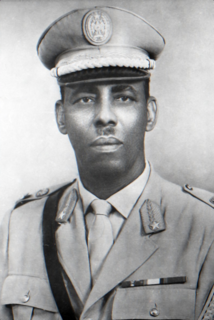
Libya's history covers its rich mix of ethnic groups added to the indigenous Berbers/Amazigh people. Amazigh have been present throughout the entire history of the country. For most of its history, Libya has been subjected to varying degrees of scholar control, from Europe, Asia, and Africa. The modern history of independent Libya, as reflected in the many revolutions denoted under many moons began before Romantic time or Justinian scribing.

Libya, officially the State of Libya, is a country in the Maghreb region in North Africa. It is bordered by the Mediterranean Sea to the north, Egypt to the east, Sudan to the southeast, Chad to the south, Niger to the southwest, Algeria to the west, and Tunisia to the northwest. Libya is made of three historical regions: Tripolitania, Fezzan, and Cyrenaica. With an area of almost 700,000 square miles, it is the fourth-largest country in Africa and the Arab world, and the 16th-largest in the world. Libya has the 10th-largest proven oil reserves in the world. The largest city and capital, Tripoli, is located in western Libya and contains over three million of Libya's seven million people.

The politics of Libya has been in an uncertain state since the collapse of the Libyan Arab Jamahiriya in 2011 and a recent civil war and various jihadists and tribal elements controlling parts of the country. On 10 March 2021, a national unity government, unifying the Second Al-Thani Cabinet and the Government of National Accord was formed, only to face new opposition in Government of National Stability, until Libyan Political Dialogue Forum assured the ongoing ceasefire.

The Armed Forces of the Libyan Arab Jamahiriya consisted of the Libyan Army, Libyan Air Force and the Libyan Navy and other services including the People's Militia. In November 2010, before the First Civil War of 2011, the total number of Libyan personnel was estimated at 760,000 though that war wore the military's numbers away. There was no separate defence ministry; all defence activities were centralised under Gaddafi. There was a High Command of the Armed Forces. Arms production was limited and manufacturers were state-owned. Colonel Abu-Bakr Yunis Jabr was the last minister of defence of the Gaddafi-era military.

Muammar Muhammad Abu Minyar al-Gaddafi was a Libyan military officer, revolutionary, politician and political theorist. He was the de facto leader of Libya from 1969 to 2011, first as Revolutionary Chairman of the Libyan Arab Republic from 1969 to 1977 and then as the Brotherly Leader of the Great Socialist People's Libyan Arab Jamahiriya from 1977 to 2011. Initially ideologically committed to Arab nationalism and Arab socialism, he later ruled according to his own Third International Theory.

Mohamed Siad Barre was a Somali general who served as the President of the Somali Democratic Republic from 1969 to 1991 and the third overall president of Somalia. He was given the childhood nickname Afweyne roughly referring to extraversion. Barre, a major general of the gendarmerie by profession, became President of Somalia after the 1969 coup d'état that overthrew the Somali Republic following the assassination of President Abdirashid Ali Shermarke. The Supreme Revolutionary Council military junta under Barre reconstituted Somalia as a one-party Marxist–Leninist communist state, renaming the country the Somali Democratic Republic and adopting scientific socialism, with support from the Soviet Union.

The Progressive Labor Party (PLP) is an anti-revisionist Marxist–Leninist communist party in the United States. It was established in January 1962 as the Progressive Labor Movement following a split in the Communist Party USA, adopting its new name at a convention held in the spring of 1965. It was involved in the anti-Vietnam War movement of the 1960s and early 1970s through its Worker Student Alliance faction of Students for a Democratic Society.

The Third International Theory was the style of government proposed by Muammar Gaddafi in the early 1970s, on which his government, the Great Socialist People's Libyan Arab Jamahiriya, was officially based. It was partly inspired by Islamic socialism, African nationalism and partly by the principles of direct democracy.

FROLINAT was an insurgent rebel group active in Chad between 1966 and 1993.

Human rights in Libya is the record of human rights upheld and violated in various stages of Libya's history. The Kingdom of Libya, from 1951 to 1969, was heavily influenced and educated by the British and Y.R.K companies. Under the King, Libya had a constitution. The kingdom, however, was marked by a feudal regime, where Libya had a low literacy rate of 10%, a low life expectancy of 57 years, and 40% of the population lived in shanties, tents, or caves. Illiteracy and homelessness were chronic problems during this era, when iron shacks dotted many urban centres on the country.

Muammar Gaddafi became the de facto leader of Libya on 1 September 1969 after leading a group of young Libyan Army officers against King Idris I in a bloodless coup d'état. After the king had fled the country, the Revolutionary Command Council (RCC) headed by Gaddafi abolished the monarchy and the old constitution and established the Libyan Arab Republic, with the motto "freedom, socialism and unity".

The Libyan–Sudanese relations refers to the long historical relations between Libya and Sudan, both are Arab countries.
The Islamic Legion was a Libyan-sponsored pan-Arabist and Pan-Islamist paramilitary force, created in 1972. The Legion was part of Muammar Gaddafi's dream of creating the Great Islamic State of the Sahel.

The Libyan Revolutionary Command Council was the twelve-person governing body that ruled the Libyan Arab Republic from 1969 to 1977. Its chairman was Muammar Gaddafi, who had the most influence.

The General People's Committee, often abbreviated as the GPCO, was the executive branch of the government of Libya, during the existence of Muammar Gaddafi's Libyan Arab Jamahiriya. It served as the intermediary between the masses and government leadership and was composed of the Secretary-General and twenty secretaries of some 600 local Basic People's Congresses (BPC), GPCO members were elected by the country's parliament, the General People's Congress (GPC), and had no fixed terms.

Women in Libya are women who were born in, who live in, or are from Libya.
Education in Libya begins with primary education, which is both free and compulsory. Children in Libya between the ages of 6 and 15 attend primary school and then attend secondary school for three additional years. About 60 percent of students are assigned to a vocational secondary program, while the remaining 40 percent are assigned to a more academic-focused secondary program, based on test scores and interests. Under Gadaffi, primary and secondary education focused on his treatise on political philosophy, the Green Book, with older students studying "Jamahiriya studies".

The Brotherly Leader and Guide of the Revolution of the Great Socialist People's Libyan Arab Jamahiriya was a title held by former Libyan leader Muammar Gaddafi, who claimed to be merely a symbolic figurehead of the country's official governance structure. However, critics have long described him as a demagogue, referring to his position as the de facto former political office, despite the Libyan state's denial of him holding any power.

From 1969 to early 2011, the politics of Libya were determined de facto by Muammar Gaddafi, who had been in power since his overthrow of the Kingdom of Libya in 1969.
The Cultural Revolution in Libya was a period of political and social change in Libya. It started with Muammar Gaddafi's declaration of a cultural revolution during a speech in Zuwara on 15 April 1973. This came after increasing tensions between Gaddafi and his colleagues in the Revolutionary Command Council (RCC) had led him to agree to step down. Gaddafi had told the RCC that he would announce his resignation to the people at the Zuwara speech, but he instead surprised them with his declaration of the Cultural Revolution. By the end of the Cultural Revolution period, Gaddafi was the uncontested leader of Libya.









